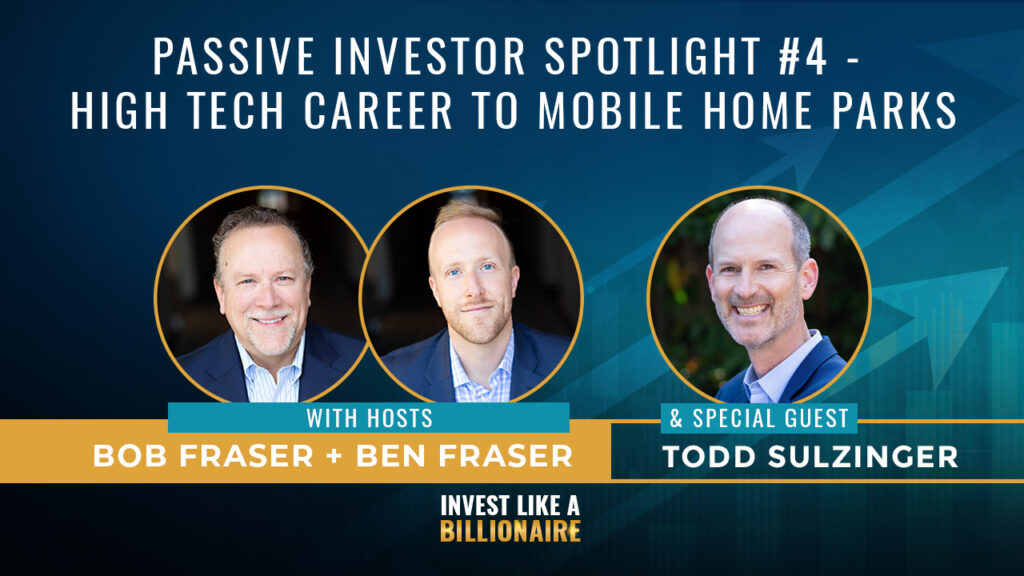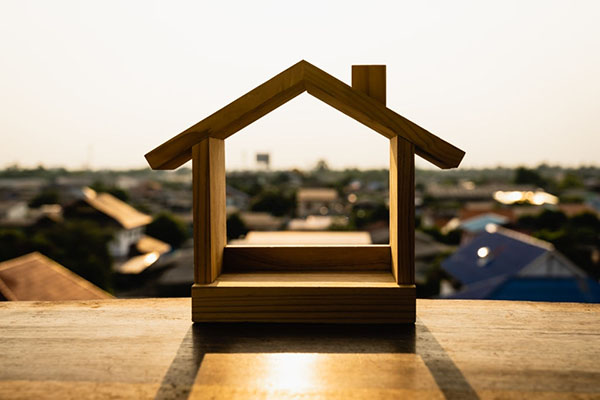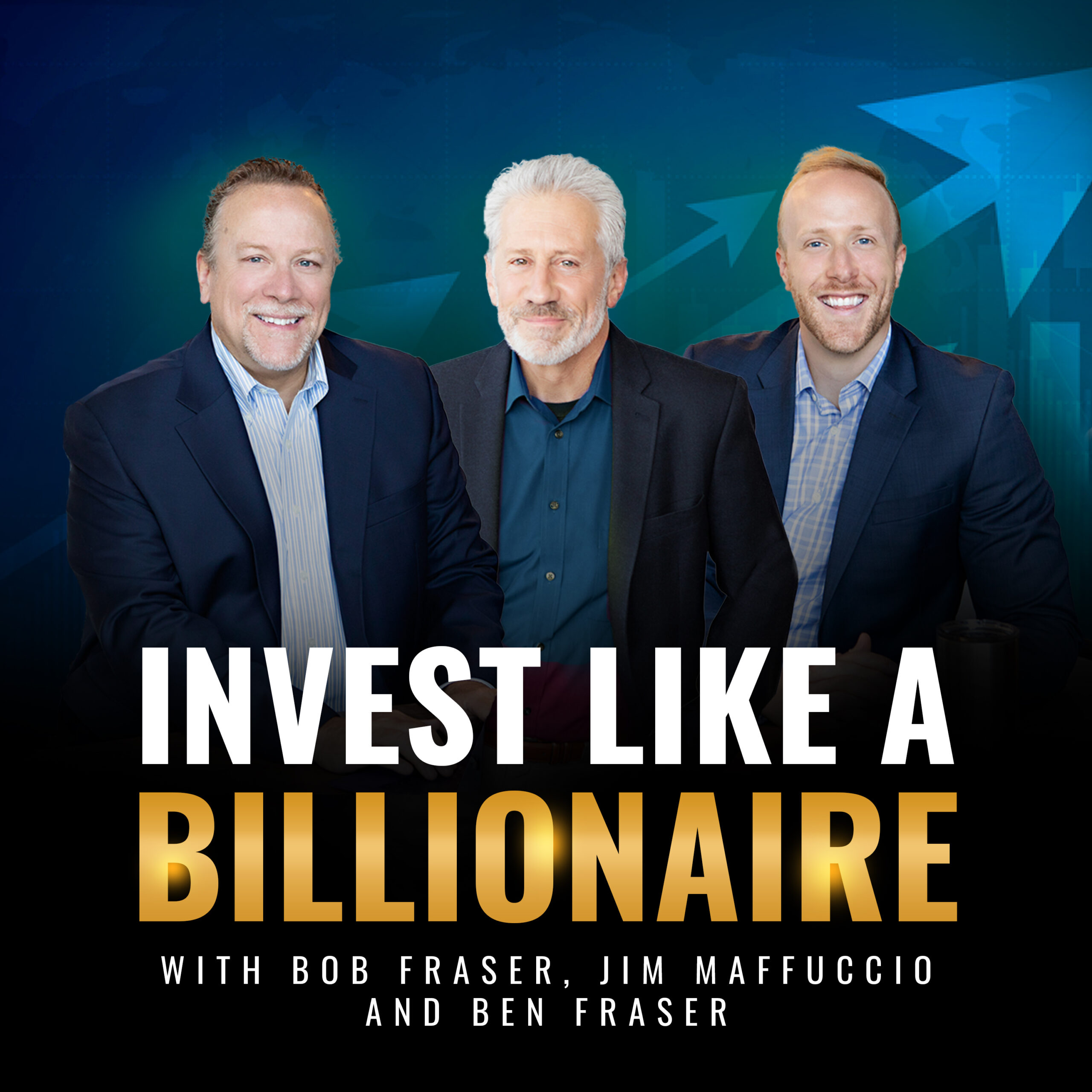
Todd Sulzinger started out with a high-powered career in Silicon Valley, but found he wanted more control over his life and what he did. When evaluating where to put some of his capital, he discovered mobile home parks, long before they became popular. In this passive investor spotlight, we dive into how Todd’s story, how his analysis led him to mobile home parks, the best strategies for earning money in MHPs, where the future is headed in this asset class, and how his journey into become a full-time passive investor unfolded.
—
Watch the episode here:
Listen to the podcast here:
Passive Investor Spotlight #4 – High Tech Career to Mobile Home Parks w/ Todd Sulzinger
We’ve got a fun guest. It is Todd Sulzinger. Todd is an expert passive investor, but he also used to be a Silicon Valley finance executive and made the shift a while back into real estate with a focus on mobile home parks. We’re going to hear the whole story of Todd’s journey, coming from the corporate world to real estate investing actively and, over the last several years, going more passively. Todd, welcome to the show.
Thanks, Ben and Bob. I’m happy to be here.
It’s an unusual journey from the high-tech, high-flyers, super sexy to the unsexy. What happened there?
I had a great career in Silicon Valley, and through working for Silicon Valley companies, the opportunity to spend a few years living in the UK and getting to travel around Europe for a couple of years. I had a great career doing that. I got tired of the lack of control. I had examples where I’d be working for a great company, and they’d say, “We’re relocating the entire finance group 500 miles away.” It’s like, “I don’t want to get up and move my family to a new place to live.” In technology companies, there are acquisitions. Companies would get purchased, and a larger acquiring company doesn’t need two finance groups.
You’re left looking for your next opportunity. That happened multiple times. I also got into that pattern of trying to chase the next IPO or chase the next great startup. It’s luck in terms of the company that you get into where you might have the chance to hit it rich. I went through a couple of IPOs and had done okay. None that I thought that I was going to hit when I was in my early to mid-30s working for these cannabis startups that ran right into the dot com bust and ended up getting sold for pennies on the dollar. That got me looking more towards something where I could have a little more control, and through a multi-year process discovered real estate and decided I wanted to build a business around that.
Of all places to go, from the high-tech sexy to mobile home parks, maybe some investors haven’t looked into what that looks like as an investment. What made you choose that over multifamily or other asset classes may be more well-known and especially probably several years ago when it was even less on the radar.
When I decided I wanted to start a syndication business, I looked at a lot of different asset classes, mobile home parks and apartments, self-storage, and acquiring groups of single-family homes. I liked mobile home parks. One because they were a little bit more of a niche asset. If I was going to start my business, I decided I didn’t want to be like another apartment syndicator. One of the things that I like about the mobile home park business is its historically recession-resistant, especially in the affordable housing space.
There are hardly any new parks being built. There’s probably a handful of 5 or 10 new parks being built across the country every year. They often get redeveloped for greater use. It’s the only real estate asset class with a decreasing supply every year. That made it attractive, and there was also less competition. I did talk to some of my apartment syndicator friends, and they go into these $100,000 hard earnest money deposits and multiple offers.
Especially in some of the hot markets to my apartments, whereas in the mobile home parks space, because while it’s growing and more people are interested in it, there wasn’t that frenzy around trying to require those. I find you can get better deals and more upside on the back end because a lot of them are run by older mom-and-pop property operators. They’re not as run as efficiently. There’s an opportunity to add value that way.
One of the things we’ve been tracking for a while, macroeconomic trend, there’s a lack of affordable housing. There’s a huge affordable housing crisis in the US. We’ve shared a lot of data on this in prior episodes, but as the structural costs and overhead to develop new homes have gone up, it’s forced a lot of the developers to go to the higher end of the market.
They have to build where there’s more margin to keep their businesses afloat. What’s left a huge gap in single-family, especially, but even within that, on the lower end of the entry-level homes. There are no new homes at that price point being built. I would imagine a very strong demand driver for mobile home parks.
It is. There’s a huge need for affordable housing. Job growth is a lot of times in low-income service level type jobs. Those people need places to live. That part of the population is growing a lot, but in the 50s, 60s, 70s, even 80s, there might’ve been newer B class, C class type of apartments being built. Now they’re all the higher-end A-class apartments. There’s a huge need for mobile home parks because they often haven’t been run well by older family operators.
A lot of parks you might get into, and some of the ones that I’ve purchased have a lot of vacant homes they’re owned by the park that can be rehab for people to live in or vacant spaces. There are literally millions of combinations of vacant homes and a lot in mobile home parks that could be put to good use for affordable housing that wouldn’t take the capital you’d need to build, maybe a new B or C class apartment.
Mobile home parks are the only real estate asset class where there's a decreasing supply every year. Share on XIt seems like, as you said, shrinking supply is increasing demand because the homes are affordable. It’s like a perfect investment opportunity. I’m not super familiar with it, but it’s scarce. It’s very difficult to buy because there are so few of them around. It sounds like a perfect opportunity, though.
Nobody knows exactly how many mobile home parks there are, but the estimates are in the 40,000 plus range. Maybe about 5% or 10% of those are owned by some bigger operators, including some traded companies, but the rest of them are in terms of a number of mobile home parks.
Is the industry still not consolidated?
No, it hasn’t. It’s still very fragmented. There are some large publicly traded companies, and a lot of those companies focus on nicer five-star parks in Florida, for example, where might be 200 or 300 spaces with a clubhouse, pool, and nice parks. As I see deals come across my desk or in my mobile home park consulting side of my business and new clients, I talk to those helping consult on parks they’re buying. There are still a lot of parks out there owned by mom-and-pop operators or operators that might own half a dozen parks in a local area.
A value-add strategy seems like it’d be great. Is that the optimal strategy that you guys are deploying?
You can find parks because they’d run by a family who maybe they’ve owned the park for 20 or 30 years, or it might be paid off there. They might live in the park, making a decent income from it, but maybe some houses became vacant and haven’t decided to fix the houses up where somebody maybe a house found disrepair, took it out and you have a vacant lot there.
As a syndicator, you might look at that thing, “If you came into this park and put in $500,000 or $1 million, you could boost the NOI for the property.” A husband and wife in their 70s or 80s do not think they want to take out, raise money from somebody or take out another $1 million in debt. What happens to those parks stays like they are, but as a syndicator, you can come in, invest in those and improve the parks.
What is the selling price of a mobile home? I don’t even have a sense of that. They’re way cheaper than a new construction build or even a previously owned home and smaller square footage.
The prices have gone up a lot in the last couple of years. It’s a combination of an increase in raw materials. When the lumber prices went up, new mobile home purchase prices increased quite a bit. Because there’s been increased demand as more people have gotten into the space, either bigger hedge funds or larger operators want to fill vacant lots, and they put in orders for new homes.
The backlog, depending on the manufacturer and where you’re located in the country, you might be looking between 6 and 12 months if you placed an order to get a new home. At the lower end, it might be $40,000, $45,000 at the upper back for maybe a double-wide that’s a couple of thousand square feet, and you might get over $100,000.
That’s still very affordable. Once you buy that, you install it and basically lease the plot from a mobile home park.
It’s a combination. I did read some statistics that said about two-thirds of new mobile homes being built are placed on private land. If you drive around a lot of parts of the country, you’ll see somebody who’s a quarter acre, half-acre lot with a mobile home on it. A lot of people in those situations as well are deciding to hire a contractor and put a stick-built house on my property? Can I buy a manufactured home? It’s quite a bit cheaper.
If you go to a mobile home park, what does it typically cost? Presumably, you get amenities. There might be swimming pools. Do you get amenities that might be comparable to an apartment complex or something like that?

Depending on the type of park, in the apartment complex world like A class, B class, C class, and mobile home parks are usually rated 1 to 5. If you’ve got five-star parks, typically on the coast, sometimes 55 and over communities, you’ll have a lot of those nice amenities similar to an A-class apartment. The parks that I acquire typically don’t have any amenities. They’re affordable housing. There’s that combination of a situation where you might own the home and rent the lot from the park, or the park can own the house and the park rented out similar to the way they would an apartment or single-family home.
If you were renting the space, what are the price ranges? How much does it cost you to rent the space?
Some nicer five-star parks or in more expensive areas like here in Silicon Valley, the lots might go for between $1,200 and $1,600 a month to rent the lot when you own the house. In a lot of other parts of the country, you could write that entire house for that or a nice apartment. In some of the less expensive markets, more rural in the South, you might be between $150 and $250 per month. In those situations, it’s affordable.
It doesn’t include utilities generally.
It typically does not. Every park is different too. One of the things I think that makes people sometimes shy away from mobile home parks versus looking at apartments is that sometimes you might find a park on city utilities. Other parks might have septic systems or a well. It might not have city utilities to make the parks a little bit more complex. It depends. Sometimes you’ve got direct metering where people individually sign up for their electricity service with a utility company. Other times, it might be built to the park, and the park bills out to the tenants.
You’ve done super well in this market in the past. Is there still a good opportunity in this mobile home space?
I think cap rates have compressed everywhere. It’s happened in the mobile home park space as well, but you’re still typically seeing between maybe 1.5% to 2% cap rate difference between multifamily apartments in a market and mobile home parks. There’s also the upside that you can find in mobile home parks where it’s not uncommon to find maybe a hydro space mobile home park that’s half occupied. It seems like it’d be hard to find a 100-unit apartment building that’d be half occupied. Those are typically more professionally run.
Sometimes parks, due to the ownership structure, might become vacant over time. There are often parks that we see that might be breaking even, or maybe selling for 1 or 2-cap, but because they might have quite a few vacant homes in the park that could be rehabbed and rented or vacant lots that can be filled in with the additional investment. You can get them into the double-digit cap rate area with the rent investment.
We’re seeing in the multifamily space value-add strategies. You can get in the 15 IRR range. What kind of returns have you experienced, number one? Number two, going forward, where do you think kind of returns can be generated for investor returns?
The best returns are probably 15% to 17% range from what I’ve seen. There’s so much variability from park to park in terms of stabilized parks versus ones in a 1 to 2-year turnaround situation. The IRR that I’ve seen on deals I’ve been involved in or people I’ve helped consult on is basically a 15% to 17% range.
It seems like you’d do better if you could find a park that’s half occupied. It seems like you could hit some incredible IRRs.
It depends on the park operator you want to be. There’s a situation where it could be 100% one way or 100% the other way or some mix where the tenants own the home, and you rent the lot, or the park owns the home, and you rent out a single-family house out. The pros are that when the tenants own the home, they take care of the maintenance. It’s their house.
That would seem to be preferable to me as an investor.
In dense markets, sometimes it just makes sense to be horizontal rather than vertical. Share on XThere’s less maintenance, less headache, for sure. The returns aren’t as high because of the spread you can get by renting the house out. I’ve had parks in Georgia, Tennessee, Arkansas, and in those markets, you might get to charge, maybe say, $200 to $250 to rent out the lot. In those same markets, you can rent the house out for $600 to $650. You got that maybe $400 spread every month. It’s $4,500 to $4,800 a year.
Typically, it doesn’t cost that much to maintain one of those houses, even including turnover. There is more work to do. You got to have a better onsite maintenance person to take care of the homes and be able to do rehabs and turn them in for the next tenant. There’s more work for sure. In the long run, your returns can be higher when you own the home.
I’m familiar with lower-income investing in homes. On paper, the returns look amazing because these are less expensive homes. Rent these things out, and it looks amazing, but in reality, they’re harder to manage. Higher return rates, property damage, other things, crime, etc., makes it very difficult for an investor to realize any of that.
You have to know to run them. There are people that love investing in A-class apartments and people that are comfortable investing in C-class. There’s the risk of return and/or brain damage versus ease of maintenance.
With some of the demand in this space, why aren’t more parks built? Is there a structural constraint where different counties or cities don’t want more of these parks built? What’s constraining the supply?
A lot of cities or counties will say, “I’ve got a huge need for affordable housing.” Somebody says, “Let’s build a mobile home park in this piece of property in town.” All the neighbors are like, “Nope,” up in arms, fight the city council to say, “You’re not putting a trailer park in our neighborhood.” Whereas if they’re built and run well, they could be a nice community. There’s that not in my backyard attitude.
The only thing is because the mobile homes themselves are personal property, treated more like a car. Even they usually have registration tags in them. You’d get it at the DMV. The property taxes are structured differently. A lot of times, cities look at these and think, “If we let that 100-unit mobile home park built and there are 100 or 200 kids living in there, and they’re all going to go to the local schools. We’re not even generating income to cover the cost of this park here.”
Sometimes from an economic sense, it doesn’t make sense, and they don’t get approved. Those are a couple of things that hold people back from doing those. I got a friend of mine who I know you may have met, Ryan Gibson, Spartan Investment Group. They’re in the process of developing a new park in Washington, 55 and over the park. It’s going to be beautiful. It’s probably going to be all tenant-owned homes with like a nice park, but they had to fight with the city to get approval for that.
It only works because, in that market, the average price for houses is over $400,000, whereas people are going to be able to move into this community for maybe $150,000 to $200,000 with a nice house. In that market, it makes sense. If it’s a market where the medium, single-family house prices are $125,000, $150,000, $200,000, sometimes it doesn’t make sense for an investor to go in and build out all that infrastructure for a park.
Do you think that sentiment is going to change ever? It seems like it’s not that bad. Why wouldn’t cities open their doors? Affordable housing is only getting worse. There’s no answer. The best answer to my mind is this.
I look at all the vacant homes across the country. If there were some government incentives to help park operators buy homes and fill those lots, it would make a huge step in the need for affordable housing. In certain markets, they need more density. I know there’s a mobile home park here in San Jose that was torn down, and they’re going to put a ten-story condo in its place. In those situations, you can get a lot more density per square yard. In dense markets, sometimes it makes sense to be horizontal rather than vertical, but in other markets where there’s lots of land room to grow, to me, it makes a lot of sense.
As an investor yourself, where do you see specifically in this mobile home park space where’s the opportunity going forward? One of our partners, Dan, he’s done very well in a mobile home park investment. They’ve recapitalized 2 or 3 times. They bought it at double-digit cap rates, and now it’s trading for five or under in a great area of the country. He hit the jackpot on that, but he’s thinking, the runner room in this space is not. It can’t keep going up based on his experience. At a broader level, what are you seeing? Are you still investing in it?
I bought a park in Arkansas in October 2021. There are still deals out there. They’re harder to find. There have been some bigger operators that have gotten into this space, and sometimes they’ll contact me through this consulting company I worked for and say, “We’re looking for 100 pads or more, city utilities, all-tenant own homes.” It’d be great to find something like an 8, 9 cap rate.

A few years ago, those existed. Those aren’t around anymore. There are still opportunities out there, but if somebody is used to like buying in at a double-digit cap rate, those are hard to find. It’s usually situations to get to that level. You’ve got to find something that’s underperforming. You’ve got to make an additional investment and then potentially get out and refinance later.
Shifting the conversation a little bit, one of the things that I love that you can speak to is passive investing. Our show focuses more on the passive investors and those that have made money or deployed wealth, specifically in alternative investments. I love your thoughts on the mobile home park space, but what other asset classes are you investing in? How do you, from your personal portfolio standpoint, create a good allocation strategy? What do you think about that?
I felt that it was burned by the stock market. A lot is the timing of when you started to invest, when you were born when you got into it. I remember specifically my daughter was born in 1998. I opened up an education IRA in a 529 plan. I did all the calculations. It’s going to grow 8% per year, and here’s the way college costs are going to grow. 2000 and 2010 are the dark years, with no return. I’m like, “All this planning, continuing to invest and to get to the end of the road, there were into this period.” It was where I expected.
We got to invest more to try to catch up. I didn’t like that. I started to educate myself more and learn more about real estate and hard assets, and started to reallocate a lot of my investments into real estate. Probably at this point, 75% to 80% are allocated towards real estate related, a combination of mobile home parks, single-family homes, mortgage note funds, and a few other types of investments. I like real assets because I don’t trust the stock market.
How much of your net worth, percentage-wise, is in mobile home parks? Are you heavily allocated there, or have you started pulling some away in other areas?
It’s probably like within mobile home parks is probably 25% or 30%. I bought my first park in 2019. As the GP is putting those deals together, that’s probably why that works now.
When you’re looking for a personal investment area, are you more focused on income or growth, combination, or what’s your personal barometer for determining if a deal’s a good fit for you?
It’s mostly income. I’d probably say if I had to do a ratio, probably 75% and become 25% growth, 55 years old. I’ve started to think of a shift in how I want to allocate my investments, in terms of risk-return, and what I’m expecting from a growth perspective, the mobile home park deals involved from a set of benches. I did do a couple of syndications in one joint venture with another partner, and those have maybe more 50/50 mix of income versus growth. It’s looking for tangible real estate investments, which is why I invested with Aspen. Prior to that, I worked with a company called American Home Preservation. I love the idea of a real estate base investment that doesn’t have the tenant aspect, at least from a passive standpoint.
Where else do you find income, especially with cap rates compressing so much in the past couple of years? It’s driving a lot of the cash-on-cash returns down on more traditional asset classes. Anywhere else that you like for income.
I’ve got other syndications, self-storage syndication, and commercial syndication. Syndications typically have more of that 50/50 combination of current income but then potential upside the back end when they sell the properties.
A lot of folks, when they start getting into these passive real estate opportunities, one of the biggest challenges initially is where do you find them? How do you find the right deals and sponsors to work with? You had a unique advantage being an operator and a GP in this one particular market, mobile homes, but how did you start to expand beyond that? How did you find opportunities? What was your process for doing that?
I think it comes down to the networking and whether it’s local meetups real estate conferences. When I started investing in single-family homes, I started in the Dallas Fort Worth market because Silicon Valley is so expensive. It’s a very tenant-friendly state, and the cap rates are so low. That was a combination of meeting somebody at a meetup and then traveling out to Dallas and doing a field trip and meeting property managers and brokers and insurance agents. It’s usually a combination of weather, maybe potentially listening to a podcast and hearing people talking to other people that may have invested with a particular operator, and then meeting people face-to-face before investing.
Who do you consider your inner circle? A lot of folks focus o know, traditionally working with financial advisors, but they’re generally elderly. You’d have a one-size-fits-all investing in the public markets. Who do you have as your inner circle to help you find the best opportunities to vet them and source deal flow?
We like real assets because we don't trust the stock market. Share on XMaybe the network I built through a lot of the real estate conferences that I’ve gone to, some relationships I built there, a couple of real estate masterminds that have a great group of smart people that are investing in a lot of different areas. In a lot of ways, the real estate community is very small, and it seems everybody knows each other and knows all the operators and deals out there. The more relationships you build, the more you find out that there are a lot of people doing a lot of different things in the market. That’s probably one of the biggest areas is through some of the masterminds or tighter groups that I belong to and other people that are investing as passive LDs.
For you, what’s more important, the horse or the jockey, the classic question?
I think it’s the jockey because I’ve been involved in syndications that the people managing it didn’t perform that well from a management standpoint or weren’t that great from a communication standpoint that made it difficult. I think you can take a good asset product and have somebody that’s not managing it well and are not communicating about it well to their investors, which can make the deal not feel good. I was involved in commercial syndication that was that way. Their syndication overall didn’t meet all the expectations but was pretty close.
Because the communication was so bad during the life of the investment, it made it continually painful to say like, “What’s going on? Why is this happening?” As a passive investor, you want to be as fast as possible and feel like somebody is handling your money in the best way and communicating about it. I think finding a good operative from that standpoint is critical. With the assumption that somebody that’s smart and trustworthy is going to manage the asset well.
What has been the best investment you’ve made in the past decade, would you say? Give us a winning story here.
I’m about to close on an RV park motel in California. I’m part of a small group where we did a lease option, a great strategy to buy real estate. A lot of times in the mobile home parks, we agreed with this park owner that we would buy the park at a fixed price in the future, but we would maintain it. We’d operate, run it, and take the profit from it. We pay him a lease option fee. We’re at the point now where we have the park under contract. That’s probably going to be a 3.5 to 4X return over a 3 or 4-year timeframe.
It’s because we invested so little. The guy who owned the park didn’t want to run it anymore and knew he wanted to sell it. He didn’t necessarily want to take the capital gains he had at that time to sell the park. He told us, “You guys can run it and pay my lease option fee. I’m getting income from it.” It’s almost like carrying back a note. He was happy. We were able to run it and add some value. Cap rates compressed as the value of the park went up. A few people we made a deal with should do pretty well.
This is painful to think about the worst investment, but a lot of times, you can learn from others’ mistakes to hopefully avoid them ourselves. Talk about a deal that maybe didn’t go as planned and maybe why that happened.
My worst investment was one of the first ones I did was a self-directed IRA. I’m going to take the money out of the stock market and open a self-directed IRA and find a good investment. After the financial crisis in 2008, 2009, this guy was developing four-unit townhomes outside of San Antonio. He would build the townhomes, sell them to an investor, and rent them out. He couldn’t get financing anymore after the crash. He was looking for private investors. I took my self-directed IRA put money in his deal. One thing after the other, he paid a big advance to one of his suppliers. That supplier went bankrupt, and he ran out of money, and the project was totally stumped.
Afterward, I found out that the money that I invested, some of it went to pay down other debts and pay some attorney’s fees. Not all went to the investment itself to build these units. If it had been a single-family home, I’d maybe have said, “I’ll take over this house. Maybe it’s half-constructed and finished it up, but I was one-fourth a townhouse.” It’s like three other people trying to figure out, “What do you want to do and me? What do you want to settle for?” Each of us contacted our attorneys and the builder, and it was a mess.
I got out of it with half or two-thirds of my investment, but the initial story was, “I’m going to need this money, six months, 14% interest, good return but short timeframe.” From a dollar standpoint, it made sense for this guy to borrow that way. I thought it was going to be a safe short-term investment until I figured out what else I wanted to do with my self-directed IRA. It did not turn out as planned.
What’d you learn from that experience?

I do a better job of understanding, “I’m giving you this money. Where is it going?” Is my full investment going right into paying suppliers to keep building? I wouldn’t do a partial type of investment like that where you have part of a unit where I wouldn’t be able to take over one piece of it if it went sideways.
One of the questions we like to ask in the past investor spotlight here is the other investments that you’ll never invest in. It sounds like maybe townhomes would be one on that list.
There’s been some private mortgages and opportunities I’ve been introduced to where you might be able to go in with 2 or 3 people and invest in a private mortgage with somebody. I’ve stayed away from those because in the event that the person didn’t pay and you had to foreclose, it would be maybe 3 or 4 of us that would be involved in figuring out, “Do we rehab it, sell it, rent it out?” I wouldn’t want to be in that situation.
Other than that, I’ve been introduced to some good opportunities in the cannabis space over the last few years. That feels a little bit risky to me from a regulatory standpoint in terms of what’s what might happen over time. A state might change the rules one way or the other in terms of distribution manufacturing. I’ve seen a few of those enticing from a return standpoint, but it felt too risky for me.
Where are you most bullish in the next few years? Where are you placing your capital? Especially in this high inflation environment that we’re experiencing right now and maybe some risk on the horizon with increases in interest rates and other things. Where do you see the opportunity that you’re positioning yourself for?
I’m still looking into mobile home park opportunities for sure. I also have been looking at apartments as well. We’re seeing it, and it’s going to be with us for a while. I still think we’re in that sweet spot right now where you can still get low-interest rate long-term debt with the future rent growth through inflation. I’m looking seriously at apartment investments, probably in secondary or tertiary markets, because the top-tier markets are so expensive now, and there’s so much competition. I’ve been looking at that and also been looking at triple net opportunities. Cap rates have seemed to have almost come in line more with another multifamily. With built-in rent growth in a triple net lease, you don’t have that ability to take advantage of inflation.
What cap rates do you see on triple net?
I looked at properties in the Michigan, Ohio area, and sometimes you’ll see those in the 7% to 8% cap range. It’s CVS or advanced auto parts or dollar general or dollar tree, places like that.
That’d be a national credit tenant.
Those might only have 2% or 3% rent bumps over a 5 or 10-year period. That’s good.
Todd, it’s been great to have you on the show here. I love hearing your thoughts on mobile home space and passive investing in general. For anyone that wants to get ahold of Todd and learn more about mobile home parks or other asset classes, his website is BlueElmInvestments.com. He also wrote a book called Success Habits of Super Achievers, a number one Amazon bestseller in Tips and Inspiring Stories to Accelerate Your Success. Go check that out. Todd, thanks so much. It’s always a pleasure to connect. Thanks again for coming on.
I love your guys’ show. Thanks, Ben and Bob. I had a good time.
Important Links:
About Todd Sulzinger

Todd is the founder of Blue Elm Investments, a mobile home park operator specializing in adding value to and transforming distressed mobile home parks across the country. Whereas many investors have overlooked mobile home parks as a profitable real estate niche, Blue Elm Investments has built the expertise to turn neglected mobile home parks into vibrant communities, increasing the availability of safe, clean, and affordable housing across the country, while offering investors above-market returns.
Prior to Blue Elm Investments, Todd spent over 25 years as a finance executive for several Silicon Valley technology companies specializing in financial analysis, business modeling, and investor relations.







